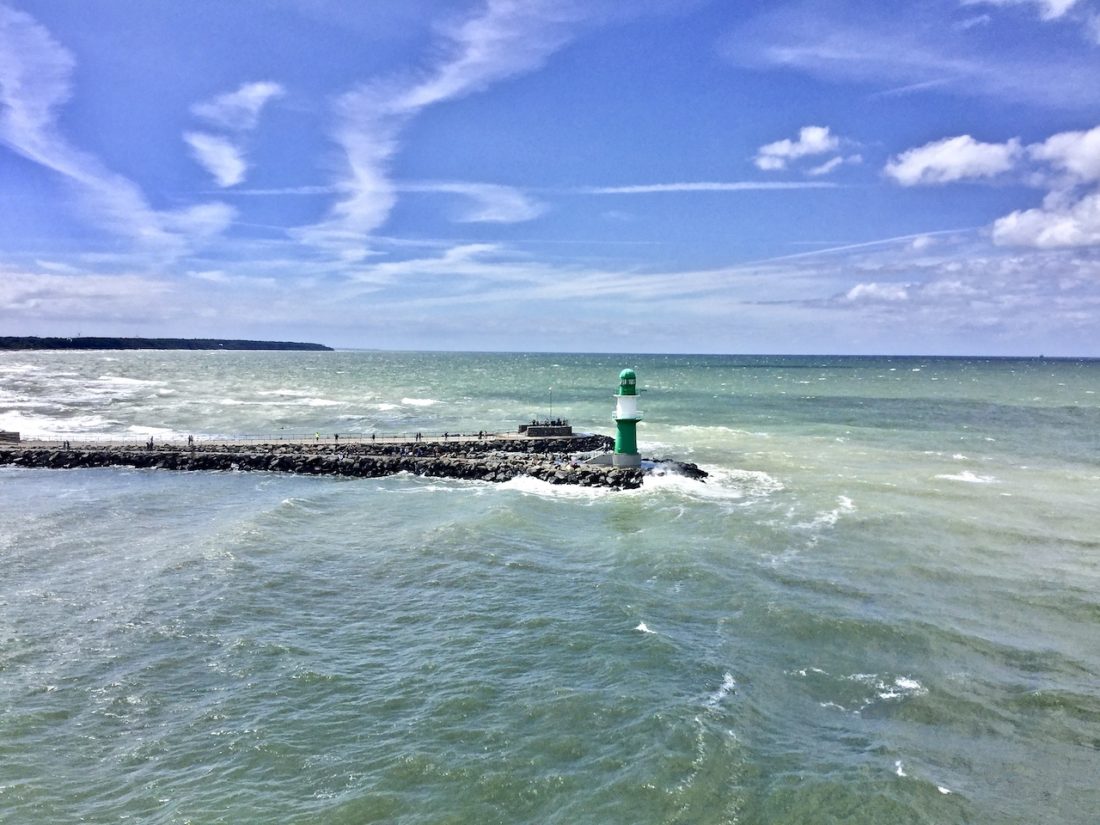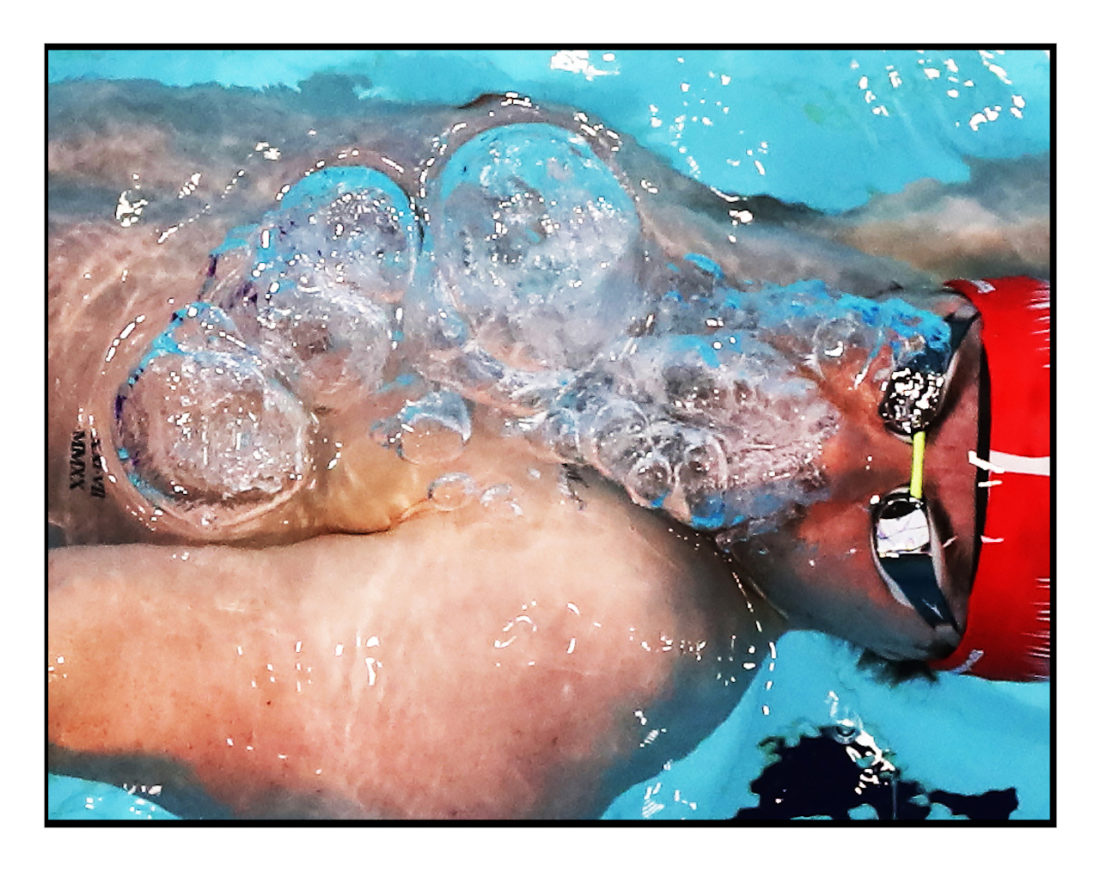A 40% Female Quota, New Name & Hoisting Honoraries Overboard Highlight The Good News On A FINA Reform Voyage In Its Infancy

Editorial – The week ahead will kick the four-letter word FINA overboard to where it belongs at the bottom of the sea with a bygone, misogynist culture; honorary positions that tow the baggage of failed governance, wilful harm, awards for despots, dubious regimes and doping kings.
The ballast still on board includes a reluctance to end the status-quo practice of protecting any member of the old boys’ club as long as they keep voting they way they’re expected to and as long as they continue to honour omertá, the code of silence that is one of the most toxic afflictions in the Olympic Movement.
In his last professional mission before he passed away last year, François Carrard, long the Swiss legal eagle for the IOC, led the FINA Reform Committee and on release of his group’s recommendations noted:

“[FINA] shall not leave a single stone unturned in the way in which it looks to the future. After all, reform is not a single event. It is a process that will test out patience.”
Francois Carrard – Swimming, a sport coming up for air? – Photo by Ian MacNicol, courtesy of Scottish Swimming
How right he was.
FINA president Husain Al-Musallam, known as The Captain (he used to work as a pilot) is the man at the helm of reform on the voluntary executive side of the coin. Since his election in June 2020, he has in part honoured a pledge he made in an interview with SOS to remove anyone who did not match the new culture of a global regulator on the reform voyage. They would simply have to be tossed overboard (those last words mine, not his).
A year after his election, The Captain and the new FINA Executive Director Brent Nowicki, an American lawyer and former WADA counsel, steered the ship into an impressive port of integrity when FINA delegates voted to ring fence the women’s category for female athletes in aquatics. A new Open category will include transgender athletes and a working group will report back with the detail recommendations in 2023.
Those decisions were taken after leaders called on a task force of world-class experts to make recommendations on transgender inclusion. Avenues of inquiry included science, law and human rights, while experts in human developmental biology and kinesiology, as well as athletes, were consulted for their knowledge and experience. The athletes include … women! It sounds logical but the screamer denotes a time in which women continue to be ignored and silenced far and wide in Olympic sport when it comes to matters that directly affect their lives and livelihoods.
In Melbourne on Monday, on the eve of racing at the World Short-Course Swimming Championships, FINA Congress will reveal the global regulator’s new name before it votes on a series of landmark changes that form part of a proposed new constitution.
Let’s start with the good news:
- Starting at Paris 2024, a minimum of 40% (it’s just under by some calculation that I admit I cannot fathom and round up, life being too short… ) of the ruling Bureau (or board) must be women. Currently, less than 15% of the FINA Bureau members are women while the average percentage of women to be found at every level of the organisation is less than 20%
Bravo!
NB: a fine, long overdue move but one that comes with caveat emptor engraved in the small print. Its matters not a jot whether board members are men, women or Martians if the culture of the organisation is that of old FINA. If any member of the board does not feel able to object to a measure or practice being adopted because the price is right even though athletes, coaches and other stakeholders never consulted are shaking their heads and directing their thumbs to the ground, then that board, its culture and that board member is worthless when it comes to good governance.
- Honorary positions, which mean that former presidents of FINA Mustapha Larfaoui and Julio Maglione will no longer have a seat at the table they presided over for a combined 33 years. In addition, a new age limit of 75 will be introduced for all members, an age that Larfaoui and Maglione exceed by 15 and 12 years respectively as the last honoraries without honour that FINA, as FINA, will ever have.
Bravo!
NB: Their era was one in which aquatic sports were run for the governors and their lifestyles not the athletes nor their safety, wellbeing and best interests. It was a time when they and then director Cornel Marculescu operated a show-must-go-on-style outfit in which wilful blind eyes were turned to harm on top of abuse that affected women far more than men (remember those generations of athletes, most of them teenage girls who were victims of abuse and fraud on both sides of the Olympic Cold War and the Sporting Crime of the 21st Century – show me the record where Larfaoui or Maglione called for reconciliation and recognition … don’t look too long – they were both IOC members – and they were silent). Their’s was an era in which cheats and the rogues rendering them cheats felt protected by the guardians of the sport; in which commercial interests outweighed the best interests of aquatic sports in a variety of ways. Some of those who were part of the leadership then now wear reform badges but their legacy does not tread water; it ripples, ebbs and flows and leaves no stone unturned.
Larfaoui is singled out for attention in News Corp newspapers, starting with the Daily Telegraph Down Under today, as the international swimming boss “accused of leaking Ian Thorpe’s private test results, which threatened to tarnish his career and reputation”. Senior sources say the outcome of the vote on honoraries is considered a virtual fait accompli. Larfaoui will not be travelling to Melbourne, which, the Telegraph’s Julian Linden notes is “just as well because it’s unlikely the ageing Larfaoui would have been welcomed back with open arms following his last trip to Melbourne”. This part of an investigation by me and Julian explains why:
Maglione has been singled out many times by this website and the predecessor, SwimVortex, that the Uruguayan helped to make unviable. You can read all about that in our reform series, which includes the tip of an iceberg of reasons why FINA became a four-letter word:
- FINA Reform Part 1: Is Swimming Coming Up For Air After Decades Of Stagnation In A Murky Pool?
- FINA Reform Part 2: The Road To Good Governance & The Climate Change Required
- FINA Reform Part 3 – Marketing Aquatics Made Simpler: Better Battles In Cleaner Waters
- FINA Reform Part 4: Events Highlight The Need To Torch Bad Culture & Swimming’s Cluttered, Chaotic, Worn-Out Window To The World
- FINA Reform Part 5: Communication & Digital Transformation
- FINA Reform Part 6: Safeguarding & Its Twin Pillar Integrity To Determine Whether Swim Regulator Will Rise Or Fall – & Why The IOC’s ‘Statute Of Limitations’ Is Irrelevant
Reforms That Put FINA On A Diet
Reform proposals also include measures that will slim FINA bureaucracy down and radically alter financial arrangements for the army of volunteers and political appointees that have characterised the way FINA has done business for decades. Among proposals are …
- measures that will lead to a downsizing of the bureaucracy of FINA: the number of committees will be drastically reduced in favour of a system in which experts in specific fields will be engaged (and paid) to provide professional advice.
Bravo!
NB: those changes hold the promise of an end to political appointments to committees that are currently home to a flotilla of hangers on there simply to enjoy the ride and stick their hand in the air when they’re told to, whether they’ve understood the issues and consequences or not. With the end of that system comes an end to the secretive per-diems system under which “volunteers” are given a per diem of between $100 and upwards of $700 per day when on FINA business at events or meetings, regardless of whether they actually have a professional role to fulfil or not. A per diem is usually recompense for expenses incurred but FINA volunteers have no costs when on FINA business because all their travel, health and travel insurance, accommodation, local transport, meals and official entertainment is all paid for by FINA directly.
One big caveat emptor: scaling back bureaucracy heavy on political appointees is a good thing but that’s not why FINA got it wrong on so many occasions in the past. Many problems came down to this: far too much power being concentrated in the hands of the few controlling the shows. When FINA voted to honour Putin (now the Pariah) in 2014 on the cusp of the biggest doping scandal since the GDR era, a handful of men, Maglione at the helm, by-passed the FINA Constitution and rules and took a minority executive decision that tainted the reputation of a whole sport. That must never, ever, happen again. By calling it out, this journalist and his website were listed in a plan FINA paid $150,000 for to “discredit” critics over a four-month period leading up to the Kazan 2015 World Championships.
At which point, another plaudit for both Al-Musallam and Nowicki: their encouraging words to the women affected by the GDR era have rippled out very far and wide and have brought hope to a hopeless place in which lives were ripped apart on Olympic watch.
Where There Is Dark …
Now what reforms have not yet tackled and the part where The Captain has much work yet to do if FINA’s name change is to be a meaningful reflection of genuine change:
On his way to Melbourne, aquatics president Al-Musallam stopped off in Fiji, with Ian Thorpe and Cate Campbell in tow to encourage learn-to-swim measures on the island. I have no issue with that, though budgets should always be assessed on actual good done where it’s needed and on that score it would be good to see encouragement for the specific learning curve gifted to Fiji by Shane Gould and Milt Nelms, for example.
All of which is a million leagues away from a touring party including Antonio Silva and a second official from the European Swimming League, LEN.
Just why money is being spent on a jolly for European aquatics officials off-continent during a cost-of-living crisis impacting billions across the world and millions of those in Europe is a reasonable question to ask, in my opinion. Europe has nothing to teach Fiji that Fiji cannot learn from its own continental back-yard pool.
And I feel my objection all the more so in light of the questions I sent a year ago to Silva and his PR/media manager Nick Davies, formerly of the IAAF until he had a spot of trouble with Russian doping and Lord Coe had to let him go. Those questions centre on issues of integrity and transparency. I have yet to receive a reply but Silva has given a version of events that fails to answer my questions while referring to those in Portuguese media reports.
As Carrard suggested, patience will be needed in the reform process. But not forever.
What The Captain needs to do is call the Europeans in and explain to them why the unanswered questions were not only reasonable but had to be answered if the agreement on Carrard and Co’s recommendations – signed off by Husain, Silva and all other members of the FINA Bureau – is to be honoured. As we note in Part 5 of our reform series listed above, this is what they all signed up for:

The Reform Committee is mindful to note that FINA’s historical “no communication communication” approach with its members, partners, Athletes and the media must immediately cease.
FINA Reform Committee – Photo: Installation, Bauhaus – by Craig Lord
I wasn’t aware that immediately meant a year and more.
Reform is neither a joke nor a convenience nor a place where we see big pats on the back for the likes of those who help get rid of “problems” like Paolo Barelli and in replacing the Italian are rewarded with a blind eye to the problems inherent in the questions they have failed to answer.
I applaud many of the moves and measures taken by president Husain Al-Musallam and director Brent Nowicki and feel sure that there is more to come but that promise stands yet as the measure of ultimate judgement: those who do not meet the standard of the new culture of governance at FINA, including matters of transparency and answering legitimate media questions, need to be shown a yellow card and then, if there is no change in behaviour, a red one.
However many letters the new FINA name has in it will matter not a jot if four-letter words can still be used to describe the governance of a wonderful sport called swimming that’s had a ball and chain round its ankle for all too long.
It needn’t be that way. Let the light in.